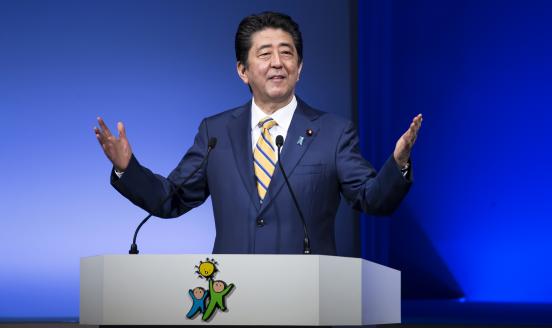Lessons from the Bank of Japan for the euro area
It was feared that after the consumption tax hike, the inflation expectations would be dampened too much and the Bank of Japan would miss its target.
It was feared that after the consumption tax hike, the inflation expectations would be dampened too much and the Bank of Japan would miss its target
The decision of the Bank of Japan end of October 2014 to significantly expand its asset-buying programme came as a surprise. The yen weakened and stock markets rallied. The decision taken with only a small majority by the board of the Bank of Japan was taken to show the resolve of the BoJ to increase inflation expectations so that inflation eventually moves to two percent. It was feared that after the consumption tax hike, the inflation expectations would be dampened too much and the Bank of Japan would miss its target. The just released Q3 data seem to confirm that fear. Governor Kuroda was explicit on the aim to change the mindset of the public arguing that “… we could face a delay in eradicating the public's deflation mindset”.
Which lessons can the euro area and the European Central Bank draw from this recent episode of Japan’s monetary policy? I would emphasize three central lessons. The first lesson is that it is very difficult to change inflation expectations and get the public move from a deflation to an inflation mindset. This is a very important lesson for the ECB. Inflation expectations in the euro area have fallen already significantly. Five-year ahead inflation swaps signal a rate of about 1% instead of the official target of the ECB of close but below two percent. The ECB needs to avoid that markets lose even more confidence in the ECB to achieve its target. The more inflation expectations get disanchored, the more difficult it will become for the ECB to change them again. The BoJ had to step up an already very large quantitative easing programme. If the ECB wants to prevent such a scenario, it should be bolder with its policies now to ensure that inflation expectations revert quickly back to the target.
The euro area should not neglect the role of fiscal policy. In Japan, an increase in taxes is unavoidable to achieve fiscal policy credibility
Second, the euro area should not neglect the role of fiscal policy. In Japan, an increase in taxes is unavoidable to achieve fiscal policy credibility. However, the timing of the last increase weakened the economic dynamics too early. One can also question whether the consumption tax is really the best tax to raise in those circumstances. Fiscal consolidation is also necessary in a number of euro area countries. Weaker countries are particularly fragile in a monetary union due to the absence of a central bank lender of last resort and therefore have to re-gain fiscal credibility. However, the simultaneous consolidations across the euro area until 2013 was a heavy burden on growth and contributed to the disinflationary momentum. Euro zone policy makers have now reduced the speed of consolidation. It would be useful if the new European Commission was successful in its plans to create a stimulus with Eurozone-level investment funded by common fiscal resources.
Finally, the Bank of Japan teaches us how controversial monetary policy measures can become. The narrow majority in the BoJ governing council still allows the BoJ to take bold decisions. In the euro area, a narrow majority is more difficult to sustain. This is particularly the case, if the opposing camps in the ECB governing council cut across countries of the North and of the South of the euro area. While this does not necessarily make the ECB non-operational, the resulting political pressure would certainly be higher. The risk is that the ECB would not be able to ever take decisions as bold as the BoJ is taking currently. In other words, once the Eurozone gets stuck in deflation, it may become even more difficult than in Japan to get out of it.
Important lesson to the euro area that monetary policy should act decisively while the euro area investment programme planned ought to be implemented
Overall, the recent episode in Japan provides the important lesson to the euro area that monetary policy should act decisively while the euro area investment programme planned ought to be implemented. The lesson from Japan’s experience of the 1990s should be taken on board: bold and early policies on banking reform and productivity enhancing structural reforms should be part of the policy package.
This is an upcoming opinion in Nikkei. Published in English with permission.



